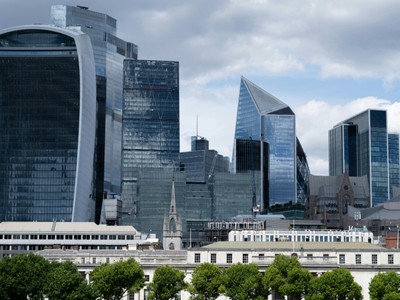Evidently, investors looking for income will have to work especially hard to find it over the coming months. Financial pressure has now turned to political pressure with the regulator (the PRA) forcing the banks to halt or defer their dividends. In addition, many other companies have suspended their dividends, while others could well be considering it.
Consensus forecasts suggest a 33% fall in the FTSE All-Share Index’s income this year, although the banks, house builders, retail and leisure, as well as the less well capitalised in the FTSE250, will be responsible for the greatest cuts. On the other hand, a number of the infrastructure funds, a large allocation for the majority of our charity clients, have reiterated over the past few weeks that they will be paying dividends as normal whilst the income flow from credit will continue despite the somewhat distressed pricing of some issues. This will cushion portfolios to some extent but double digit falls in income received seem inevitable and need to be planned for. One problem we have is that no one knows how long this will last. Some deferred dividend payments might be made if the shutdown or overall economic impact of the shutdown is short. If it lasts for an extended period, then many more dividends will likely be cancelled, not just deferred.
Furthermore the market has not only had to contend with the coronavirus over the past month or so but also an oil war between Saudi Arabia and Russia. With reports that a deal appears to be close, the price has recovered somewhat from a recent low of $20 a barrel to nearer $30 but one must not forget the price was over $60 as we entered 2020. The US oil industry remains under continued production pressure at such low prices. This is also important for the UK market where BP and Royal Dutch Shell account for over 13.5% of the overall FTSE100 Index (down from a previous index weighting of c.18%) not forgetting their above average dividend distributions.
One issue that remains unknown is the depth and severity of this economic retrenchment; is it a recession followed by a swift recovery, or a full blown depression akin to the 1920/30s? There are worrying statistics, including the fact that in the UK we have seen over 1 million apply for Universal Credit, while in the US a record 6.6 million Americans filed for jobless aid last week, more than double the 3.3 million that applied two weeks ago. With 90% of Americans now under some form of lockdown, when the US makes up a quarter of world GDP, this is a worrying statistic, hence the massive monetary and fiscal stimulus into the global economy.
The policy response though from central banks has been unprecedented. There has been a barrage of cheap money, liquidity and tax cuts, which should provide the market with some much-needed support. All this creates a very uncertain outlook, especially for those reliant on their income flow from their investments. For those that rely on the income from their investments, it is perhaps sensible to plan for a c.25% cut in the portfolio’s income flow over the next 12 months. It goes without saying that this is a significant haircut but something I think charities, and others who invest for income, need to consider.




